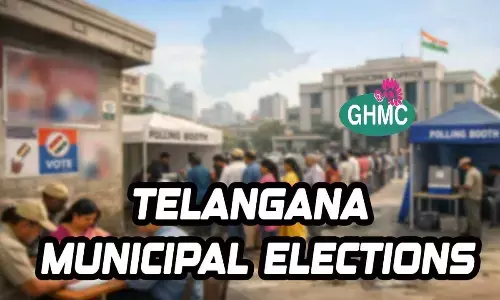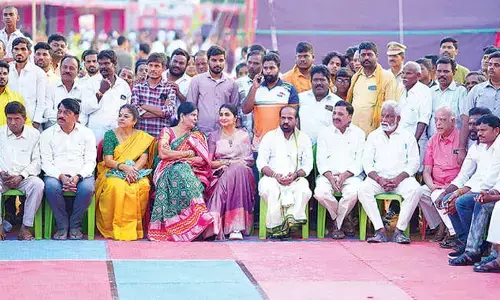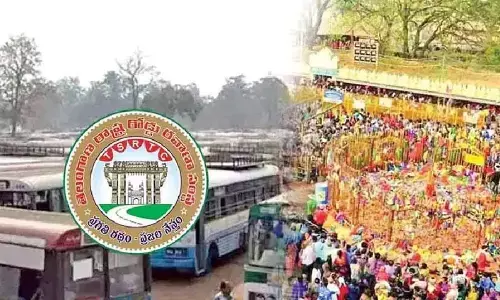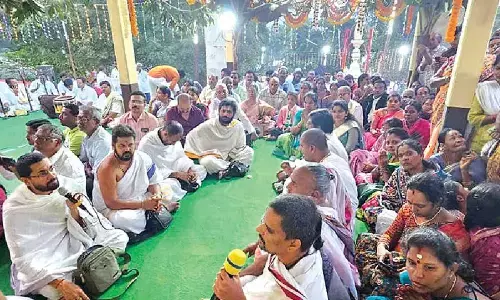Dasarathi, a writer extraordinaire
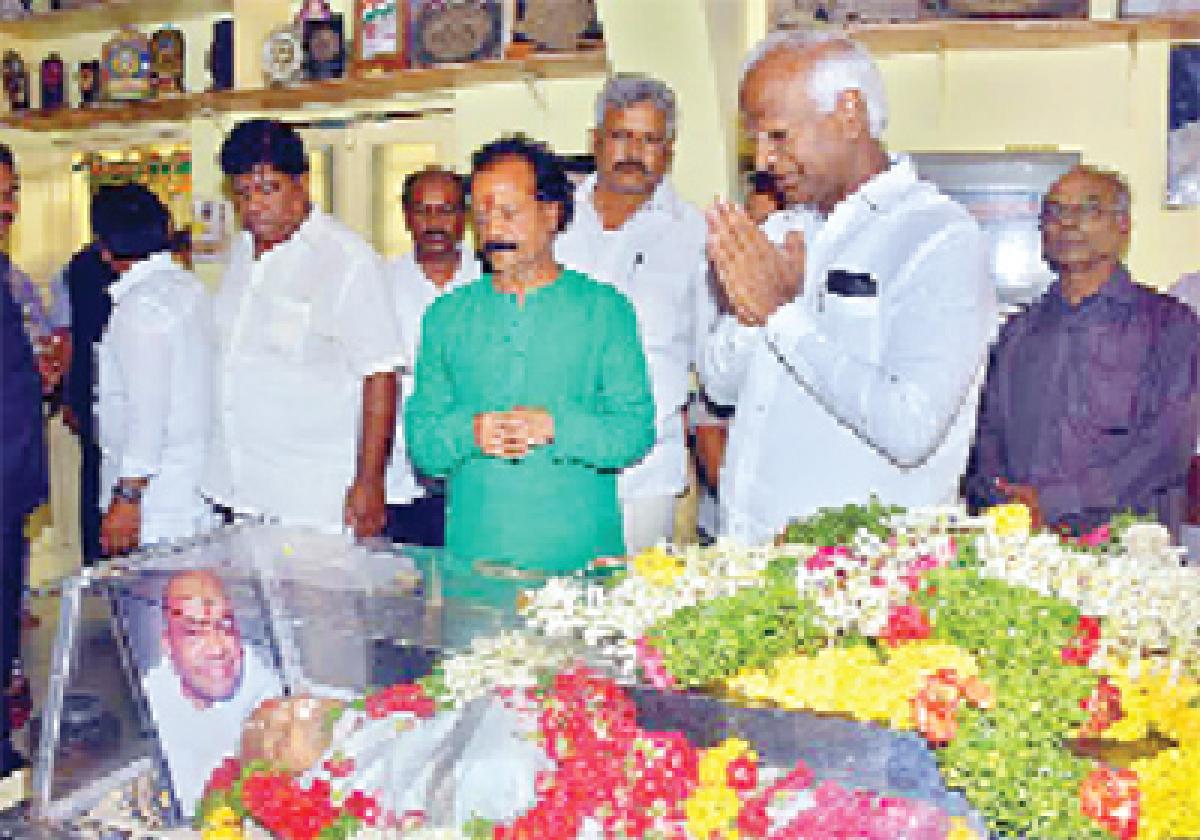
Dasarathi Rangacharya, a literary giant and a versatile genius of Telugu literature, who breathed fire against the autocratic rule of Nizam, is a champion of Telangana Armed Struggle. Born at Chitti Guduru village in Warangal district (now in Khammam district) on August 24, 1928, Dasarathi grown up in the footsteps of his brother Krishnamacharya is an aggressive personality unlike his contemporaries.
Hyderabad: Dasarathi Rangacharya, a literary giant and a versatile genius of Telugu literature, who breathed fire against the autocratic rule of Nizam, is a champion of Telangana Armed Struggle. Born at Chitti Guduru village in Warangal district (now in Khammam district) on August 24, 1928, Dasarathi grown up in the footsteps of his brother Krishnamacharya is an aggressive personality unlike his contemporaries.
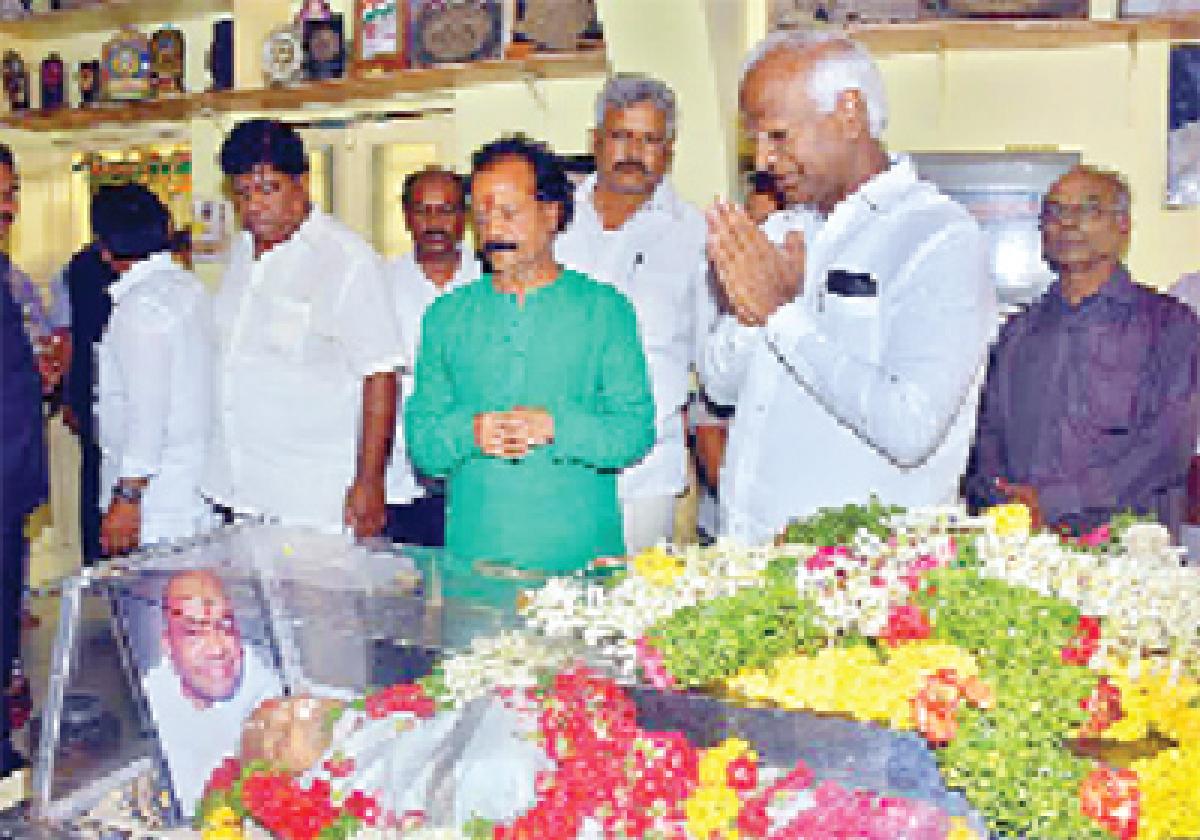 He jumped into the movement against suppression of people by the feudal lords of the region at a very young age. Later on, Dasarathi transformed himself into a towering personality among literary circles. He had to shoulder the responsibility of his family when his brother Krishnamacharya was arrested.
He jumped into the movement against suppression of people by the feudal lords of the region at a very young age. Later on, Dasarathi transformed himself into a towering personality among literary circles. He had to shoulder the responsibility of his family when his brother Krishnamacharya was arrested.
He remained unperturbed despite the supporters of Nizam attacked him. Although he suffered bullet injuries, his fighting spirit remained undiminished. He vividly portrayed atrocities committed by the feudal landlords on the common people in his works, such as “Chillara Devulu, Modugu Poolu and Janapatham, etc.
His works portrayed the course of Telangana armed struggle, history, and lifestyle of the region. He turned a spiritualist after being a Communist for long time. He wrote Srimadramayanam, Sri Mahabharatam in Telugu in a lucid style. His revolutionary work consisted of translation of four Vedas into Telugu language. He put the Vedas in writing despite religious prescription against such practice. He wrote “Vedam-Jeevana nadam.”
His work “Chillara Devullu”, which was also filmed under the direction of T Madhusudana Rao, had earned him the National Sahitya Academy award. This film was dubbed into other languages as well. He received numerous awards for his contribution to the literary world and the society. He was also called as Abhinava Vyasa.
His autobiography ‘Jeevanayanam’ has great impact on the Telangana literature. He worked as a teacher between 1951 and 1957, and also worked with the Secunderabad Municipal Corporation between 1957 and 1988.
By:G Balakrishna








